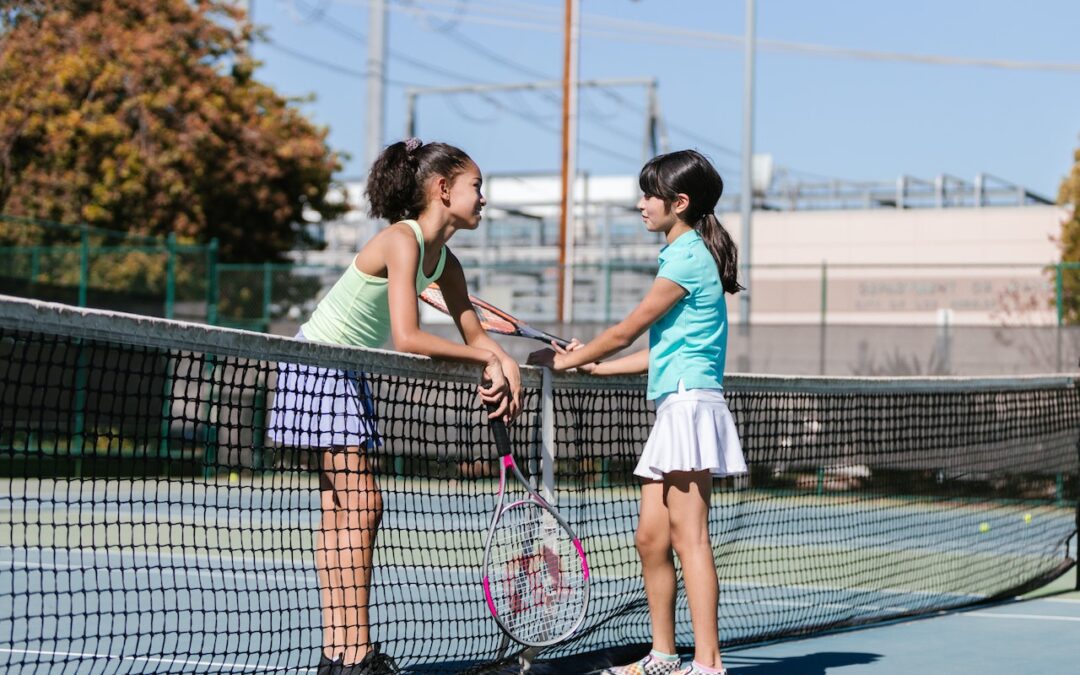Sports are more than just a pastime; they are a way of life transcending age boundaries. Whether you’re a child, teenager, young adult, or senior citizen, there is a sport or physical activity for you. Staying active and engaged in sports throughout life promotes physical health, enhances mental well-being, fosters social connections, and instills valuable life lessons.
The Benefits of Sports For Children
- Physical Health: For children, sports are an excellent way to develop strong bones, muscles, and cardiovascular health. Regular physical activity helps combat obesity and lowers the risk of chronic diseases later in life.
- Social Development: Team sports like soccer, basketball, and baseball teach kids essential social skills such as teamwork, communication, and sportsmanship. They also provide opportunities to make friends and build a sense of belonging.
- Discipline and Time Management: Playing sports helps children learn discipline, time management, and setting goals. These skills are transferable to academic and personal life.
- Confidence Boost: Success in sports, even small achievements, can boost a child’s self-esteem and confidence. They learn to overcome challenges and develop a growth mindset.
The Role of Sports in Teenagers’ Lives
- Stress Relief: Adolescence can be stressful, and sports effectively relieve stress and anxiety. Physical activity triggers the release of endorphins, improving mood and reducing stress levels.
- Academic Performance: Contrary to the belief that sports distract from academics, research suggests that teenagers who participate in sports have better time management and perform better academically.
- Healthy Habits: Engaging in sports during adolescence encourages the development of lifelong healthy habits, reducing the risk of obesity and related health issues.
- Career Opportunities: For some, sports can open doors to scholarship opportunities and even professional careers. Even if not, sports can provide valuable life skills and experiences.
The Importance of Staying Active in Adulthood
- Physical Fitness: As adults, staying active is crucial for maintaining physical health. Regular exercise reduces the risk of chronic illnesses like heart disease, diabetes, and hypertension.
- Stress Reduction: The pressures of work and family life can be overwhelming. Engaging in sports or physical activities offers an outlet for stress, promoting mental well-being.
- Social Connection: Adult sports leagues, clubs, and fitness classes provide an opportunity to socialize and make new friends, combating feelings of isolation.
- Lifelong Learning: Learning a new sport or skill as an adult can be mentally stimulating and provide a sense of accomplishment. It keeps the brain active and engaged.
Sports for Senior Citizens: Active Aging
- Physical Mobility: Staying active through sports helps seniors maintain flexibility, balance, and muscle strength, reducing the risk of falls and injuries.
- Cognitive Health: Engaging in mentally stimulating sports like chess, tennis, or golf can help seniors keep their minds sharp and may reduce the risk of cognitive decline.
- Social Interaction: Participating in sports or group activities in later life promotes social connections and combats loneliness, contributing to a better quality of life.
- Sense of Purpose: Sports give seniors a sense of purpose and a reason to stay active, helping them maintain a positive outlook.
Sports are not just for the young; they are a lifelong pursuit that offers numerous physical, mental, and social benefits. Whether you’re a child, teenager, adult, or senior citizen, there’s a sport or physical activity suited to your age and interests. Remember, starting or continuing your sports journey is never too late.
